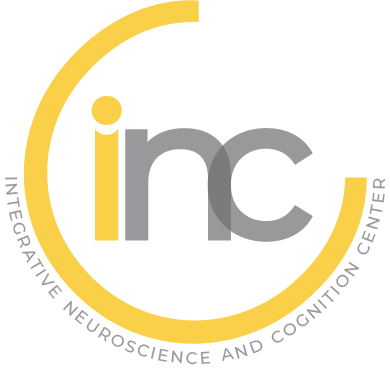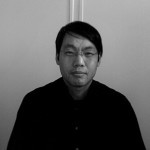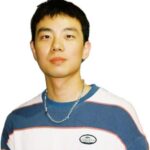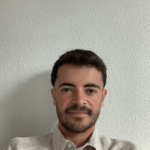Translational Cognitive Neuroscience and Neuroengineering
TC2N is a team at the INCC that brings together a diverse group of scientists and clinicians with backgrounds in cognitive neuroscience, neuropsychology, theoretical physics, neurosurgery, and neuroengineering. The team includes collaborators from hospitals, industry, and interdisciplinary research centers. Our shared goal is to combine fundamental research on brain function with translational approaches to improve health outcomes and develop innovative technologies.
TC2N has two central objectives. First, we aim to develop theoretical models of cognitive processes such as perception, consciousness, and action. Second, we strive to apply this foundational research to clinical contexts and therapeutic innovation through a translational approach that integrates both typical and atypical populations. This dual orientation is made possible by strong collaborations with clinical institutions and access to patients with various neurological and developmental conditions.
Our research combines a wide range of methodologies, including intracranial recordings in epileptic patients, electrocorticography, fMRI, EEG, MEG, eyetracking, and pupillometry. We also design and implement virtual reality environments and develop Brain-Machine and Brain-Computer Interfaces (BMI and BCI) aimed at supporting individuals with acquired conditions (such as stroke, Parkinson’s disease, amputation, or tetraplegia) as well as developmental disorders (such as epilepsy, ASD, ADHD, or Friedreich’s ataxia).
Research topics
Our work is structured around four major research themes that each seek to bridge academic neuroscience with clinical and applied research:
Theme 1: From Brain Mechanisms of Conscious Perception in Typical Populations to Unconscious Processing in Brain-Damaged Patients
This theme investigates how the brain integrates conscious and unconscious processes to produce a unified, yet dynamic, subjective experience. Projects explore the neural mechanisms of perception in healthy individuals, develop diagnostic tools for assessing consciousness in patients with disorders of consciousness, examine the role of sleep and reward in memory consolidation, and investigate unconscious visual processing in cortically blind patients.
Theme 2: Neuro-Morphic Engineering
This research axis focuses on biologically inspired alternatives to traditional AI. We develop spiking neural networks and neuromorphic architectures for human-machine interfaces and autonomous systems. These models aim to combine biological plausibility with efficiency and adaptability, contributing to a better understanding of cognition and paving the way for next-generation intelligent systems.
Theme 3: Assessing and Restoring Cognitive Functions: From Perception to Action
In this theme, we use a variety of experimental techniques to study visual perception, attention, and action in both typical individuals and patients. We apply these insights to develop new diagnostic tools and rehabilitation technologies, including BCIs based on ideomotor principles, VR-based attention training for patients with spatial neglect, and robotic systems for post-stroke motor rehabilitation.
Theme 4: Understanding the Development of Cognitive Functions in Typical and Atypical Populations
Here, we investigate the role of vision in social interaction and develop participatory research projects on neurodevelopmental conditions, particularly autism spectrum disorders. This includes projects on visual fixation and sensory processing in urban environments, with the goal of improving inclusivity and well-being for neurodiverse individuals.
TC2N is committed to advancing both theoretical understanding and practical applications of cognitive neuroscience, bridging disciplines and communities to promote impactful research.
TEAM MEMBERS
Team leaders
Permanent researchers
- Pierre BOURDILLON, PH Fondation Rothschild, Translational Cognitive Neuroscience and Neuroengineering
- Selim Eskiizmirliler, MCF HDR, Translational Cognitive Neuroscience and Neuroengineeringselim.eskiizmirliler@-Code to remove to avoid SPAM-parisdescartes.fr
- Clémentine GARRIC, Researcher FOR-INCC, Translational Cognitive Neuroscience and Neuroengineeringclementine.garric@-Code to remove to avoid SPAM-u-paris.fr
- Florian Waszak, DR-CNRS, Director of the center, Translational Cognitive Neuroscience and Neuroengineeringroom H431J
Visiting scientists
Support staff
Members
- Qing Yang, IR CNRS, BRAINFLOW: Neural Dynamics, Cognition and Theory, IT and Technical support, Perception and Action, Translational Cognitive Neuroscience and Neuroengineeringroom 613-10
︾ PUBLICATIONS ︾
Journal articles
2025
- ref_biblio
- Álvaro Darriba, Hamdi Habacha, Yang Seok Cho, Florian Waszak. ERP prediction error responses under temporal constraints. Brain Research, 2025, 1865, pp.149867. ⟨10.1016/j.brainres.2025.149867⟩. ⟨hal-05221311⟩
- Accès au texte intégral et bibtex
-


- ref_biblio
- Álvaro Darriba, Arnold Munnich, Pedro Cardoso-Leite, Benoît Funalot, Florian Waszak. Clinical and cognitive assessment in Friedreich ataxia clinical trials: a review. Frontiers in Neurology, 2025, 16, ⟨10.3389/fneur.2025.1558493⟩. ⟨hal-05223684⟩
- Accès au bibtex
-

2024
- ref_biblio
- Wai Ying Chung, Álvaro Darriba, Nick Yeung, Florian Waszak. Give it a second try? The influence of feedback and performance in the decision of reattempting. Cognition, 2024, 248, pp.105803. ⟨10.1016/j.cognition.2024.105803⟩. ⟨hal-04572086⟩
- Accès au bibtex
-

- ref_biblio
- Alix Gouret, Solène Le Bars, Thibault Porssut, Florian Waszak, Sylvie Chokron. Advancements in brain-computer interfaces for the rehabilitation of unilateral spatial neglect: a concise review. Frontiers in Neuroscience, 2024, 18, ⟨10.3389/fnins.2024.1373377⟩. ⟨hal-04572083⟩
- Accès au bibtex
-

- ref_biblio
- Başak Türker, Dragana Manasova, Benoît Béranger, Lionel Naccache, Claire Sergent, et al.. Distinct dynamic connectivity profiles promote enhanced conscious perception of auditory stimuli. Communications Biology, 2024, 7 (1), pp.856. ⟨10.1038/s42003-024-06533-7⟩. ⟨hal-04970252⟩
- Accès au bibtex
-

2023
- ref_biblio
- Louis Béal, Clémentine Garric, Jean-François Rouland, Quentin Lenoble. Central Visual Attention in Primary Open-angle Glaucoma.. Optometry and vision science : official publication of the American Academy of Optometry, 2023, 100 (7), pp.459-466. ⟨10.1097/OPX.0000000000002036⟩. ⟨hal-04699923⟩
- Accès au bibtex
-

- ref_biblio
- Elvira G-Guzmán, Yonatan Sanz Perl, Jakub Vohryzek, Anira Escrichs, Dragana Manasova, et al.. The lack of temporal brain dynamics asymmetry as a signature of impaired consciousness states. Interface Focus, 2023, 13 (3), pp.20220086. ⟨10.1098/rsfs.2022.0086⟩. ⟨hal-04502774⟩
- Accès au texte intégral et bibtex
-


- ref_biblio
- Clementine Garric, Yannick Wamain, Jean-François Rouland, Quentin Lenoble. Glaucoma-associated abnormalities in cortical activity during a visuocognitive task. Neurophysiologie Clinique = Clinical Neurophysiology, 2023, Neurophysiologie Clinique = Clinical Neurophysiology, 156, p. 47-56. ⟨10.1016/j.clinph.2023.09.012⟩. ⟨hal-04354013⟩
- Accès au texte intégral et bibtex
-


- ref_biblio
- Xiu Miao, Carolin Müller, Nicolas D Lutz, Qing Yang, Florian Waszak, et al.. Sleep consolidates stimulus–response learning. Perceptual and Motor Skills, 2023, 30 (9), pp.175-184. ⟨10.1101/lm.053753.123⟩. ⟨hal-04221890⟩
- Accès au texte intégral et bibtex
-


- ref_biblio
- Delphine Potdevin, Parvaneh Adibpour, Clémentine Garric, Eszter Somogyi, Ghislaine Dehaene-Lambertz, et al.. Brain Lateralization for Language, Vocabulary Development and Handedness at 18 Months. Symmetry, 2023, 15 (5), pp.989. ⟨10.3390/sym15050989⟩. ⟨hal-04290757⟩
- Accès au texte intégral et bibtex
-


- ref_biblio
- Başak Türker, Esteban Munoz Musat, Emma Chabani, Alexandrine Fonteix-Galet, Jean-Baptiste Maranci, et al.. Behavioral and brain responses to verbal stimuli reveal transient periods of cognitive integration of the external world during sleep. Nature Neuroscience, 2023, 26 (11), pp.1981-1993. ⟨10.1038/s41593-023-01449-7⟩. ⟨hal-04244825⟩
- Accès au texte intégral et bibtex
-


- ref_biblio
- Başak Türker, Laouen Belloli, Adrian Owen, Lorina Naci, Jacobo Sitt. Processing of the same narrative stimuli elicits common functional connectivity dynamics between individuals. Scientific Reports, 2023, 13 (1), pp.21260. ⟨10.1038/s41598-023-48656-7⟩. ⟨hal-04970257⟩
- Accès au bibtex
-

- ref_biblio
- Yannick Wamain, Clementine Garric, Quentin Lenoble. Dynamics of low-pass-filtered object categories: A decoding approach to ERP recordings. Vision Research, 2023, Vision Research, 204, p. 108165. ⟨10.1016/j.visres.2022.108165⟩. ⟨hal-04353959⟩
- Accès au texte intégral et bibtex
-


2022
- ref_biblio
- Wai Ying Chung, Álvaro Darriba, Betina Korka, Andreas Widmann, Erich Schröger, et al.. Action effect predictions in ‘what’, ‘when’, and ‘whether’ intentional actions. Brain Research, 2022, 1791, pp.147992. ⟨10.1016/j.brainres.2022.147992⟩. ⟨hal-04573575⟩
- Accès au bibtex
-

- ref_biblio
- Diane Derrien, Clémentine Garric, Claire Sergent, Sylvie Chokron. The nature of blindsight: implications for current theories of consciousness. Neuroscience of Consciousness, 2022, 2022 (1), ⟨10.1093/nc/niab043⟩. ⟨hal-03821404⟩
- Accès au bibtex
-

- ref_biblio
- Anira Escrichs, Yonatan Sanz Perl, Carme Uribe, Estela Camara, Basak Türker, et al.. Unifying turbulent dynamics framework distinguishes different brain states. Communications Biology, 2022, 5 (1), pp.638. ⟨10.1038/s42003-022-03576-6⟩. ⟨hal-04970258⟩
- Accès au bibtex
-

- ref_biblio
- Raphael Vallat, Başak Türker, Alain Nicolas, Perrine Ruby. High Dream Recall Frequency is Associated with Increased Creativity and Default Mode Network Connectivity. Nature and Science of Sleep, 2022, Volume 14, pp.265-275. ⟨10.2147/NSS.S342137⟩. ⟨hal-03951398⟩
- Accès au texte intégral et bibtex
-


2021
- ref_biblio
- Álvaro Darriba, Sandrien van Ommen, Yi-Fang Hsu, Florian Waszak. Visual Predictions Operate on Different Timescales. Journal of Cognitive Neuroscience, 2021, 33 (6), pp.984-1002. ⟨10.1162/jocn_a_01711⟩. ⟨hal-03438918⟩
- Accès au texte intégral et bibtex
-


- ref_biblio
- Álvaro Darriba, Yi-Fang Hsu, Sandrien van Ommen, Florian Waszak. Intention-based and sensory-based predictions. Scientific Reports, 2021, 11 (1), ⟨10.1038/s41598-021-99445-z⟩. ⟨hal-03424555⟩
- Accès au texte intégral et bibtex
-


- ref_biblio
- Clémentine Garric, Jean-François Rouland, Quentin Lenoble. Glaucoma and Computer Use: Do Contrast and Color Enhancements Improve Visual Comfort in Patients ?. Ophthalmology Glaucoma, 2021, 4 (5), pp.531-540. ⟨10.1016/j.ogla.2021.01.006⟩. ⟨hal-04702663⟩
- Accès au texte intégral et bibtex
-


- ref_biblio
- Yi-Fang Hsu, Florian Waszak, Juho Strömmer, Jarmo A Hamalainen. Human brain ages with hierarchy-selective attenuation of prediction errors. Cerebral Cortex, 2021, 31 (4), pp.2156-2168. ⟨10.1093/cercor/bhaa352⟩. ⟨hal-02973625v2⟩
- Accès au texte intégral et bibtex
-


- ref_biblio
- Yi-Fang Hsu, Álvaro Darriba, Florian Waszak. Attention modulates repetition effects in a context of low periodicity. Brain Research, 2021, 1767, pp.147559. ⟨10.1016/j.brainres.2021.147559⟩. ⟨hal-03424385⟩
- Accès au texte intégral et bibtex
-


- ref_biblio
- Karen R Konkoly, Kristoffer Appel, Emma Chabani, Anastasia Mangiaruga, Jarrod Gott, et al.. Real-time dialogue between experimenters and dreamers during REM sleep. Current Biology, 2021, ⟨10.1016/j.cub.2021.01.026⟩. ⟨hal-03154112⟩
- Accès au texte intégral et bibtex
-


- ref_biblio
- Betina Korka, Andreas Widmann, Florian Waszak, Álvaro Darriba, Erich Schröger. The auditory brain in action: Intention determines predictive processing in the auditory system—A review of current paradigms and findings. Psychonomic Bulletin and Review, 2021, ⟨10.3758/s13423-021-01992-z⟩. ⟨hal-03424552⟩
- Accès au texte intégral et bibtex
-


- ref_biblio
- Solène Le Bars, Sylvie Chokron, Rodrigo Balp, Khalida Douibi, Florian Waszak. Theoretical Perspective on an Ideomotor Brain-Computer Interface: Toward a Naturalistic and Non-invasive Brain-Computer Interface Paradigm Based on Action-Effect Representation. Frontiers in Human Neuroscience, 2021, 15, ⟨10.3389/fnhum.2021.732764⟩. ⟨hal-03433246⟩
- Accès au bibtex
-

2020
- ref_biblio
- Sylvie Chokron, Lucas Dubourg, Clémentine Garric, Fiora Martinelli, Céline Perez. Dissociations between perception and awareness in hemianopia. Restorative Neurology and Neuroscience, 2020, 38 (3), pp.189-201. ⟨10.3233/RNN-190951⟩. ⟨hal-03031522⟩
- Accès au texte intégral et bibtex
-


- ref_biblio
- Clémentine Garric, Florent Caetta, Claire Sergent, Sylvie Chokron. Making sense of blindsense-Author's response to: Commentary by Ian Phillips,. Cortex, 2020, 127, pp.393-395. ⟨10.1016/j.cortex.2020.03.004⟩. ⟨hal-03031396⟩
- Accès au texte intégral et bibtex
-


- ref_biblio
- Christina Pfeuffer, Karolina Moutsopoulou, Florian Waszak, Andrea Kiesel. Execution-based and verbal code-based stimulus–response associations: proportion manipulations reveal conflict adaptation processes in item-specific priming. Psychological Research, 2020, 84 (8), pp.2172-2195. ⟨10.1007/s00426-019-01220-3⟩. ⟨hal-03037746⟩
- Accès au bibtex
-

2019
- ref_biblio
- Rodrigo Balp, Therese Collins, Florian Waszak. Remapping versus short-term memory in visual stability across saccades. Attention, Perception, and Psychophysics, 2019, 81 (1), pp.98-108. ⟨10.3758/s13414-018-1602-z⟩. ⟨hal-02384546⟩
- Accès au bibtex
-

- ref_biblio
- Annika Boldt, Anne-Marike Schiffer, Florian Waszak, Nick Yeung. Confidence Predictions Affect Performance Confidence and Neural Preparation in Perceptual Decision Making. Scientific Reports, 2019, 9 (1), pp.4031. ⟨10.1038/s41598-019-40681-9⟩. ⟨hal-02384552⟩
- Accès au texte intégral et bibtex
-


- ref_biblio
- Clémentine Garric, Aïda Sebaa, Florent Caetta, Céline Perez, Julien Savatovsky, et al.. Dissociation between objective and subjective perceptual experiences in a population of hemianopic patients: A new form of blindsight?. Cortex, 2019, 117, pp.299-310. ⟨10.1016/j.cortex.2019.05.006⟩. ⟨hal-02396090⟩
- Accès au texte intégral et bibtex
-


- ref_biblio
- Yi-Fang Hsu, Florian Waszak, Jarmo A Hamalainen. Prior Precision Modulates the Minimization of Auditory Prediction Error. Frontiers in Human Neuroscience, 2019, 13 (30), pp.1-9. ⟨10.3389/fnhum.2019.00030⟩. ⟨hal-02390592⟩
- Accès au texte intégral et bibtex
-


- ref_biblio
- François Lambert, Julien Bacqué-Cazenave, Anne Le Seach, Jessica Arama, Gilles Courtand, et al.. Stabilization of Gaze during Early Xenopus Development by Swimming-Related Utricular Signals.. Current Biology, 2019, ⟨10.1016/j.cub.2019.12.047⟩. ⟨hal-02413450⟩
- Accès au texte intégral et bibtex
-


- ref_biblio
- Solène Le Bars, Álvaro Darriba, Florian Waszak. Event-related brain potentials to self-triggered tones: Impact of action type and impulsivity traits. Neuropsychologia, 2019, 125, pp.14-22. ⟨10.1016/j.neuropsychologia.2019.01.012⟩. ⟨hal-02384559⟩
- Accès au bibtex
-

- ref_biblio
- Karolina Moutsopoulou, Christina Pfeuffer, Andrea Kiesel, Qing Yang, Florian Waszak. How long is long-term priming? Classification and action priming in the scale of days. Quarterly Journal of Experimental Psychology, 2019, 72 (5), pp.1183-1199. ⟨10.1177/1747021818784261⟩. ⟨hal-02384664⟩
- Accès au bibtex
-

- ref_biblio
- Luca Ticini, Simone Schütz-Bosbach, Florian Waszak. From goals to muscles: motor familiarity shapes the representation of action-related sounds in the human motor system. Cognitive Neuroscience, 2019, 10 (1), pp.20-29. ⟨10.1080/17588928.2018.1424128⟩. ⟨hal-02384440⟩
- Accès au texte intégral et bibtex
-


2018
- ref_biblio
- Álvaro Darriba, Florian Waszak. Predictions through evidence accumulation over time. Scientific Reports, 2018, 8 (1), pp.494. ⟨10.1038/s41598-017-18802-z⟩. ⟨hal-02384625⟩
- Accès au texte intégral et bibtex
-


- ref_biblio
- Yi-Fang Hsu, Jarmo Hämäläinen, Florian Waszak. The processing of mispredicted and unpredicted sensory inputs interact differently with attention. Neuropsychologia, 2018, 111, pp.85-91. ⟨10.1016/j.neuropsychologia.2018.01.034⟩. ⟨hal-02384689⟩
- Accès au bibtex
-

- ref_biblio
- Pierre Jacquet, Valentin Wyart, Andrea Desantis, Yi-Fang Hsu, Lionel Granjon, et al.. Human susceptibility to social influence and its neural correlates are related to perceived vulnerability to extrinsic morbidity risks. Scientific Reports, 2018, 8 (13347), pp.1-18. ⟨10.1038/s41598-018-31619-8⟩. ⟨hal-02313970⟩
- Accès au texte intégral et bibtex
-


- ref_biblio
- Christina Pfeuffer, Theresa Hosp, Eva Kimmig, Karolina Moutsopoulou, Florian Waszak, et al.. Defining stimulus representation in stimulus–response associations formed on the basis of task execution and verbal codes. Psychological Research, 2018, 82 (4), pp.744-758. ⟨10.1007/s00426-017-0861-y⟩. ⟨hal-02384696⟩
- Accès au bibtex
-

- ref_biblio
- Christina Pfeuffer, Karolina Moutsopoulou, Florian Waszak, Andrea Kiesel. Multiple priming instances increase the impact of practice-based but not verbal code-based stimulus-response associations. Acta Psychologica, 2018, 184, pp.100-109. ⟨10.1016/j.actpsy.2017.05.001⟩. ⟨hal-02384732⟩
- Accès au bibtex
-

- ref_biblio
- Luca Ticini, Thomas Dolk, Florian Waszak, Simone Schütz-Bosbach. IPL-M1 interaction shapes pre-reflective social differentiation in the human action system: new insights from TBS and TMS combined. Scientific Reports, 2018, 8 (1), pp.12001. ⟨10.1038/s41598-018-30480-z⟩. ⟨hal-02384678⟩
- Accès au texte intégral et bibtex
-


2017
- ref_biblio
- Alexander Jones, Yi-Fang Hsu, Lionel Granjon, Florian Waszak. Temporal expectancies driven by self- and externally generated rhythms. NeuroImage, 2017, 156, pp.352-362. ⟨10.1016/j.neuroimage.2017.05.042⟩. ⟨hal-02384741⟩
- Accès au bibtex
-

- ref_biblio
- Christina Pfeuffer, Karolina Moutsopoulou, Roland Pfister, Florian Waszak, Andrea Kiesel. The power of words: On item-specific stimulus–response associations formed in the absence of action.. Journal of Experimental Psychology. Human Perception and Performance, 2017, 43 (2), pp.328-347. ⟨10.1037/xhp0000317⟩. ⟨hal-02384753⟩
- Accès au bibtex
-

- ref_biblio
- Anne-Marike Schiffer, Kayla Siletti, Florian Waszak, Nick Yeung. Adaptive behaviour and feedback processing integrate experience and instruction in reinforcement learning. NeuroImage, 2017, 146, pp.626-641. ⟨10.1016/j.neuroimage.2016.08.057⟩. ⟨hal-02384762⟩
- Accès au texte intégral et bibtex
-


- ref_biblio
- Luca Ticini, Simone Schütz-Bosbach, Florian Waszak. Mirror and (absence of) counter-mirror responses to action sounds measured with TMS. Social Cognitive and Affective Neuroscience, 2017, 12 (11), pp.1748-1757. ⟨10.1093/scan/nsx106⟩. ⟨hal-02384720⟩
- Accès au texte intégral et bibtex
-


- ref_biblio
- Romain Vincent, Yi-Fang Hsu, Florian Waszak. Category-specific features and valence in action-effect prediction: An EEG study. Biological Psychology, 2017, 123, pp.220-225. ⟨10.1016/j.biopsycho.2016.12.005⟩. ⟨hal-02384747⟩
- Accès au bibtex
-

2016
- ref_biblio
- Andrea Desantis, Florian Waszak, Karolina Moutsopoulou, Patrick Haggard. How action structures time: About the perceived temporal order of action and predicted outcomes. Cognition, 2016, 146, pp.100-109. ⟨10.1016/j.cognition.2015.08.011⟩. ⟨hal-02384783⟩
- Accès au texte intégral et bibtex
-


- ref_biblio
- Andrea Desantis, Florian Waszak, Andrei Gorea. Agency alters perceptual decisions about action-outcomes. Experimental Brain Research, 2016, 234 (10), pp.2819-2827. ⟨10.1007/s00221-016-4684-7⟩. ⟨hal-02384790⟩
- Accès au bibtex
-

- ref_biblio
- Yi-Fang Hsu, Jarmo Hämäläinen, Florian Waszak. The auditory N1 suppression rebounds as prediction persists over time. Neuropsychologia, 2016, 84, pp.198-204. ⟨10.1016/j.neuropsychologia.2016.02.019⟩. ⟨hal-02384801⟩
- Accès au bibtex
-

- ref_biblio
- Solène Le Bars, Yi-Fang Hsu, Florian Waszak. The impact of subliminal effect images in voluntary vs. stimulus-driven actions. Cognition, 2016, 156, pp.6-15. ⟨10.1016/j.cognition.2016.07.005⟩. ⟨hal-02384774⟩
- Accès au bibtex
-

- ref_biblio
- Eric Matheron, Qing Yang, Vincent Delpit-Baraut, Olivier Dailly, Zoï Kapoula. Active ocular vergence improves postural control in elderly as close viewing distance with or without a single cognitive task. Neuroscience Letters, 2016, 610, pp.24-29. ⟨10.1016/j.neulet.2015.10.065⟩. ⟨hal-04915849⟩
- Accès au bibtex
-

2015
- ref_biblio
- Fredrik Allenmark, Karolina Moutsopoulou, Florian Waszak. A new look on S–R associations: How S and R link. Acta Psychologica, 2015, 160, pp.161-169. ⟨10.1016/j.actpsy.2015.07.016⟩. ⟨hal-02384852⟩
- Accès au bibtex
-

- ref_biblio
- F Allenmark, Yi-Fang Hsu, C Roussel, Florian Waszak. Repetition priming results in sensitivity attenuation. Brain Research, 2015, 1626, pp.211-217. ⟨10.1016/j.brainres.2015.03.030⟩. ⟨hal-02384874⟩
- Accès au texte intégral et bibtex
-


- ref_biblio
- Yi-Fang Hsu, Jarmo A Hämäläinen, Karolina Moutsopoulou, Florian Waszak. Auditory event-related potentials over medial frontal electrodes express both negative and positive prediction errors. Biological Psychology, 2015, 106, pp.61-67. ⟨10.1016/j.biopsycho.2015.02.001⟩. ⟨hal-02384960⟩
- Accès au bibtex
-

- ref_biblio
- Yi-Fang Hsu, Solène Le Bars, Jarmo A Hämäläinen, Florian Waszak. Distinctive Representation of Mispredicted and Unpredicted Prediction Errors in Human Electroencephalography. Journal of Neuroscience, 2015, 35 (43), pp.14653-14660. ⟨10.1523/JNEUROSCI.2204-15.2015⟩. ⟨hal-02384902⟩
- Accès au texte intégral et bibtex
-


- ref_biblio
- Yi-Fang Hsu, Romain Vincent, Florian Waszak. Optimistic, pessimistic, realistic: Event-related potential evidence for how depressive symptoms influences expectation formation in the Human brain. Brain Research, 2015, 35 (43), pp.14653-14660. ⟨10.1016/j.brainres.2015.05.029⟩. ⟨hal-02384932⟩
- Accès au bibtex
-

- ref_biblio
- Karolina Moutsopoulou, Qing Yang, Andrea Desantis, Florian Waszak. Stimulus–classification and stimulus–action associations: Effects of repetition learning and durability. Quarterly Journal of Experimental Psychology, 2015, 68 (9), pp.1744-1757. ⟨10.1080/17470218.2014.984232⟩. ⟨hal-02384885⟩
- Accès au bibtex
-

- ref_biblio
- Karolina Moutsopoulou, Florian Waszak, Qing Yang, Andrea Desantis. Stimulus–classification and stimulus–action associations: Effects of repetition learning and durability. Quarterly Journal of Experimental Psychology, 2015, 68 (9), pp.1744-1757. ⟨10.1080/17470218.2014.984232⟩. ⟨hal-03424525⟩
- Accès au bibtex
-

- ref_biblio
- Florian Waszak, Nick Yeung. The role of prediction and outcomes in adaptive cognitive control. Journal of Physiology - Paris, 2015, 109 (1-3), pp.38-52. ⟨10.1016/j.jphysparis.2015.02.001⟩. ⟨hal-02384829⟩
- Accès au bibtex
-

2014
- ref_biblio
- Pedro Cardoso-Leite, Florian Waszak. Summation versus suppression in metacontrast masking: On the potential pitfalls of using metacontrast masking to assess perceptual–motor dissociation. Attention, Perception, and Psychophysics, 2014, 76 (5), pp.1403-1413. ⟨10.3758/s13414-014-0670-y⟩. ⟨hal-02386854⟩
- Accès au bibtex
-

- ref_biblio
- Pedro Cardoso-Leite, Florian Waszak, Jöran Lepsien. Human perceptual decision making: Disentangling task onset and stimulus onset. Human Brain Mapping, 2014, 35 (7), pp.3170-3187. ⟨10.1002/hbm.22393⟩. ⟨hal-02386825⟩
- Accès au bibtex
-

- ref_biblio
- Andrea Desantis, Cedric Roussel, Florian Waszak. The temporal dynamics of the perceptual consequences of action-effect prediction. Cognition, 2014, 132 (3), pp.243-250. ⟨10.1016/j.cognition.2014.04.010⟩. ⟨hal-02386875⟩
- Accès au bibtex
-

- ref_biblio
- Andrea Desantis, Pascal Mamassian, Matteo Lisi, Florian Waszak. The prediction of visual stimuli influences auditory loudness discrimination. Experimental Brain Research, 2014, 232 (10), pp.3317-3324. ⟨10.1007/s00221-014-4001-2⟩. ⟨hal-02386820⟩
- Accès au texte intégral et bibtex
-


- ref_biblio
- Andrei Gorea, Delphine Rider, Qing Yang. A unified comparison of stimulus-driven, endogenous mandatory and 'free choice' saccades. PLoS ONE, 2014, 9 (2), pp.e88990. ⟨10.1371/journal.pone.0088990⟩. ⟨hal-01429955⟩
- Accès au bibtex
-

- ref_biblio
- Richard Henson, Doris Eckstein, Florian Waszak, Christian Frings, Aidan J Horner. Stimulus–response bindings in priming. Trends in Cognitive Sciences, 2014, 18 (7), pp.376-384. ⟨10.1016/j.tics.2014.03.004⟩. ⟨hal-02386864⟩
- Accès au texte intégral et bibtex
-


- ref_biblio
- Yi-Fang Hsu, Jarmo A Hämäläinen, Florian Waszak. Repetition suppression comprises both attention-independent and attention-dependent processes. NeuroImage, 2014, 98, pp.168-175. ⟨10.1016/j.neuroimage.2014.04.084⟩. ⟨hal-02386894⟩
- Accès au bibtex
-

- ref_biblio
- Yi-Fang Hsu, Jarmo Hã¤mã¤lã¤inen, Florian Waszak. Both attention and prediction are necessary for adaptive neuronal tuning in sensory processing. Frontiers in Human Neuroscience, 2014, 8 (152), pp.1-9. ⟨10.3389/fnhum.2014.00152⟩. ⟨hal-02386848⟩
- Accès au texte intégral et bibtex
-


- ref_biblio
- Gethin Hughes, Florian Waszak. Predicting faces and houses: Category-specific visual action-effect prediction modulates late stages of sensory processing. Neuropsychologia, 2014, 61, pp.11-18. ⟨10.1016/j.neuropsychologia.2014.06.002⟩. ⟨hal-02386908⟩
- Accès au bibtex
-

- ref_biblio
- Zoï Kapoula, Alexandre Lang, Thanh-Thuan Lê, Marie-Sarah Adenis, Qing Yang, et al.. Visiting Richard Serra's "Promenade" sculpture improves postural control and judgment of subjective visual vertical. Frontiers in Psychology, 2014, 5, ⟨10.3389/fpsyg.2014.01349⟩. ⟨hal-02946991⟩
- Accès au bibtex
-

- ref_biblio
- Alexandre Lang, Chrystal Gaertner, Elham Ghassemi, Qing Yang, Christophe Orssaud. Saccade-vergence properties remain more stable over short-time repetition under overlap than under gap task: a preliminary study. Frontiers in Human Neuroscience, 2014, 8, ⟨10.3389/fnhum.2014.00372⟩. ⟨hal-04915853⟩
- Accès au bibtex
-

- ref_biblio
- Cedric Roussel, Gethin Hughes, Florian Waszak. Action prediction modulates both neurophysiological and psychophysical indices of sensory attenuation. Frontiers in Human Neuroscience, 2014, 8 (115), pp.1-6. ⟨10.3389/fnhum.2014.00115⟩. ⟨hal-02386839⟩
- Accès au texte intégral et bibtex
-


- ref_biblio
- Anne-Marike Schiffer, T Muller, Nick Yeung, Florian Waszak. Reward Activates Stimulus-Specific and Task-Dependent Representations in Visual Association Cortices. Journal of Neuroscience, 2014, 34 (47), pp.15610-15620. ⟨10.1523/JNEUROSCI.1640-14.2014⟩. ⟨hal-02385067⟩
- Accès au texte intégral et bibtex
-


2013
- ref_biblio
- Marie Devaine, Florian Waszak, Pascal Mamassian. Dual Process for Intentional and Reactive Decisions. PLoS Computational Biology, 2013, 9 (4), pp.e1003013. ⟨10.1371/journal.pcbi.1003013⟩. ⟨hal-02386793⟩
- Accès au texte intégral et bibtex
-


- ref_biblio
- Yi-Fang Hsu, Jarmo A Hämäläinen, Florian Waszak. Temporal expectation and spectral expectation operate in distinct fashion on neuronal populations. Neuropsychologia, 2013, 51 (13), pp.2548-2555. ⟨10.1016/j.neuropsychologia.2013.09.018⟩. ⟨hal-02386812⟩
- Accès au bibtex
-

- ref_biblio
- Gethin Hughes, Andrea Desantis, Florian Waszak. Attenuation of auditory N1 results from identity-specific action-effect prediction. European Journal of Neuroscience, 2013, 37 (7), pp.1152-1158. ⟨10.1111/ejn.12120⟩. ⟨hal-02386755⟩
- Accès au bibtex
-

- ref_biblio
- Gethin Hughes, Andrea Desantis, Florian Waszak. Mechanisms of intentional binding and sensory attenuation: The role of temporal prediction, temporal control, identity prediction, and motor prediction.. Psychological Bulletin, 2013, 139 (1), pp.133-151. ⟨10.1037/a0028566⟩. ⟨hal-02386688⟩
- Accès au bibtex
-

- ref_biblio
- Alexander Jones, Gethin Hughes, Florian Waszak. The interaction between attention and motor prediction. An ERP study. NeuroImage, 2013, 83, pp.533-541. ⟨10.1016/j.neuroimage.2013.07.004⟩. ⟨hal-02386803⟩
- Accès au bibtex
-

- ref_biblio
- Zoï Kapoula, Chrystal Gaertner, Qing Yang, Pierre Denise, Michel Toupet. Vergence and Standing Balance in Subjects with Idiopathic Bilateral Loss of Vestibular Function. PLoS ONE, 2013, 8 (6), pp.e66652. ⟨10.1371/journal.pone.0066652⟩. ⟨hal-04915860⟩
- Accès au bibtex
-

- ref_biblio
- Zoi Kapoula, Qing Yang, Jorge Otero-Millan, Shifu Xiao, Stephen Macknik, et al.. Distinctive features of microsaccades in Alzheimer’s disease and in mild cognitive impairment. AGE, 2013, 36 (2), pp.535-543. ⟨10.1007/s11357-013-9582-3⟩. ⟨hal-04915854⟩
- Accès au bibtex
-

- ref_biblio
- Alexandre Lang, Marine Vernet, Qing Yang, Christophe Orssaud, Alain Londero, et al.. Differential auditory-oculomotor interactions in patients with right vs. left sided subjective tinnitus: a saccade study. Frontiers in Human Neuroscience, 2013, 7, ⟨10.3389/fnhum.2013.00047⟩. ⟨hal-02947153⟩
- Accès au bibtex
-

- ref_biblio
- Paola Mengotti, Luca F Ticini, Florian Waszak, Simone Schütz-Bosbach, Raffaella I Rumiati. Imitating others' actions: transcranial magnetic stimulation of the parietal opercula reveals the processes underlying automatic imitation. European Journal of Neuroscience, 2013, 37 (2), pp.316-322. ⟨10.1111/ejn.12019⟩. ⟨hal-02386696⟩
- Accès au bibtex
-

- ref_biblio
- Karolina Moutsopoulou, Florian Waszak. Durability of classification and action learning: differences revealed using ex-Gaussian distribution analysis. Experimental Brain Research, 2013, 226 (3), pp.373-382. ⟨10.1007/s00221-013-3445-0⟩. ⟨hal-02386714⟩
- Accès au bibtex
-

- ref_biblio
- Cedric Roussel, Gethin Hughes, Florian Waszak. A preactivation account of sensory attenuation. Neuropsychologia, 2013, 51 (5), pp.922-929. ⟨10.1016/j.neuropsychologia.2013.02.005⟩. ⟨hal-02386712⟩
- Accès au bibtex
-

- ref_biblio
- Florian Waszak, Roland Pfister, Andrea Kiesel. Top-down versus bottom-up: when instructions overcome automatic retrieval. Psychological Research, 2013, 77 (5), pp.611-617. ⟨10.1007/s00426-012-0459-3⟩. ⟨hal-02386703⟩
- Accès au bibtex
-

- ref_biblio
- Qing Yang, Tao Wang, Ning Su, Shifu Xiao, Zoï Kapoula. Specific saccade deficits in patients with Alzheimer’s disease at mild to moderate stage and in patients with amnestic mild cognitive impairment. AGE, 2013, 35 (4), pp.1287-1298. ⟨10.1007/s11357-012-9420-z⟩. ⟨hal-02384275⟩
- Accès au bibtex
-

2012
- ref_biblio
- Andrea Desantis, Carmen Weiss, Simone Schütz-Bosbach, Florian Waszak. Believing and Perceiving: Authorship Belief Modulates Sensory Attenuation. PLoS ONE, 2012, 7 (5), pp.e37959. ⟨10.1371/journal.pone.0037959⟩. ⟨hal-02386641⟩
- Accès au texte intégral et bibtex
-


- ref_biblio
- Andrea Desantis, Gethin Hughes, Florian Waszak. Intentional Binding Is Driven by the Mere Presence of an Action and Not by Motor Prediction. PLoS ONE, 2012, 7 (1), pp.e29557. ⟨10.1371/journal.pone.0029557⟩. ⟨hal-02386591⟩
- Accès au texte intégral et bibtex
-


- ref_biblio
- Egbert Hartstra, Florian Waszak, Marcel Brass. The implementation of verbal instructions: Dissociating motor preparation from the formation of stimulus–response associations. NeuroImage, 2012, 63 (3), pp.1143-1153. ⟨10.1016/j.neuroimage.2012.08.003⟩. ⟨hal-02386647⟩
- Accès au bibtex
-

- ref_biblio
- Arvid Herwig, Florian Waszak. Action-Effect Bindings and Ideomotor Learning in Intention- and Stimulus-Based Actions. Frontiers in Psychology, 2012, 3 (444), pp.1-18. ⟨10.3389/fpsyg.2012.00444⟩. ⟨hal-02386658⟩
- Accès au texte intégral et bibtex
-


- ref_biblio
- Yi-Fang Hsu, Florian Waszak. Stimulus-classification traces are dominant in response learning. International Journal of Psychophysiology, 2012, 86 (3), pp.262-268. ⟨10.1016/j.ijpsycho.2012.10.002⟩. ⟨hal-02386666⟩
- Accès au bibtex
-

- ref_biblio
- Karolina Moutsopoulou, Florian Waszak. Across-task priming revisited: Response and task conflicts disentangled using ex-Gaussian distribution analysis.. Journal of Experimental Psychology. Human Perception and Performance, 2012, 38 (2), pp.367-374. ⟨10.1037/a0025858⟩. ⟨hal-02386620⟩
- Accès au bibtex
-

- ref_biblio
- Luca F Ticini, Simone Schütz-Bosbach, Carmen Weiss, Antonino Casile, Florian Waszak. When Sounds Become Actions: Higher-order Representation of Newly Learned Action Sounds in the Human Motor System. Journal of Cognitive Neuroscience, 2012, 24 (2), pp.464-474. ⟨10.1162/jocn_a_00134⟩. ⟨hal-02386582⟩
- Accès au bibtex
-

- ref_biblio
- Florian Waszak, Pedro Cardoso-Leite, Gethin Hughes. Action effect anticipation: Neurophysiological basis and functional consequences. Neuroscience and Biobehavioral Reviews, 2012, 36 (2), pp.943-959. ⟨10.1016/j.neubiorev.2011.11.004⟩. ⟨hal-02386628⟩
- Accès au bibtex
-

2011
- ref_biblio
- Andrea Desantis, Cédric Roussel, Florian Waszak. On the influence of causal beliefs on the feeling of agency. Consciousness and Cognition, 2011, 20 (4), pp.1211-1220. ⟨10.1016/j.concog.2011.02.012⟩. ⟨hal-02386446⟩
- Accès au bibtex
-

- ref_biblio
- Gethin Hughes, Florian Waszak. ERP correlates of action effect prediction and visual sensory attenuation in voluntary action. NeuroImage, 2011, 56 (3), pp.1632-1640. ⟨10.1016/j.neuroimage.2011.02.057⟩. ⟨hal-02386563⟩
- Accès au bibtex
-

- ref_biblio
- Gethin Hughes, S. Schutz-Bosbach, Florian Waszak. One Action System or Two? Evidence for Common Central Preparatory Mechanisms in Voluntary and Stimulus-Driven Actions. Journal of Neuroscience, 2011, 31 (46), pp.16692-16699. ⟨10.1523/JNEUROSCI.2256-11.2011⟩. ⟨hal-02386575⟩
- Accès au bibtex
-

- ref_biblio
- Stephanie Jainta, Marine Vernet, Qing Yang, Zoï Kapoula. The pupil reflects motor preparation for saccades – even before the eye starts to move. Frontiers in Human Neuroscience, 2011, 5, ⟨10.3389/fnhum.2011.00097⟩. ⟨hal-02947142⟩
- Accès au bibtex
-

- ref_biblio
- Zoï Kapoula, Qing Yang, Thanh-Thuan Lê, Marine Vernet, Nolwenn Berbey, et al.. Medio-Lateral Postural Instability in Subjects with Tinnitus. Frontiers in Neurology, 2011, 2, ⟨10.3389/fneur.2011.00035⟩. ⟨hal-02947159⟩
- Accès au bibtex
-

- ref_biblio
- Zoï Kapoula, Qing Yang, Norman Sabbah, Marine Vernet. Different Effects of Double-Pulse TMS of the Posterior Parietal Cortex on Reflexive and Voluntary Saccades. Frontiers in Human Neuroscience, 2011, 5, ⟨10.3389/fnhum.2011.00114⟩. ⟨hal-02947140⟩
- Accès au bibtex
-

- ref_biblio
- Zoï Kapoula, Marie-Sarah Adenis, Thanh-Thuan Lê, Qing Yang, Gabi Lipede. Pictorial depth increases body sway.. Psychology of Aesthetics, Creativity, and the Arts, 2011, 5 (2), pp.186-193. ⟨10.1037/a0022087⟩. ⟨hal-05222399⟩
- Accès au bibtex
-

- ref_biblio
- Veronika Krieghoff, Florian Waszak, Wolfgang Prinz, Marcel Brass. Neural and behavioral correlates of intentional actions. Neuropsychologia, 2011, 49 (5), pp.767-776. ⟨10.1016/j.neuropsychologia.2011.01.025⟩. ⟨hal-02386571⟩
- Accès au bibtex
-

- ref_biblio
- Marine Vernet, Qing Yang, Zoï Kapoula. Guiding Binocular Saccades during Reading: A TMS Study of the PPC. Frontiers in Human Neuroscience, 2011, 5, ⟨10.3389/fnhum.2011.00014⟩. ⟨hal-02947044⟩
- Accès au bibtex
-

- ref_biblio
- Qing Yang, Tao Wang, Ning Su, Yuanyuan Liu, Shifu Xiao, et al.. Long Latency and High Variability in Accuracy-Speed of Prosaccades in Alzheimer’s Disease at Mild to Moderate Stage. Dementia and Geriatric Cognitive Disorders Extra, 2011, 1 (1), pp.318-329. ⟨10.1159/000333080⟩. ⟨hal-02384260⟩
- Accès au bibtex
-

- ref_biblio
- Qing Yang, Zoï Kapoula. Distinct Control of Initiation and Metrics of Memory-Guided Saccades and Vergence by the FEF: A TMS Study. PLoS ONE, 2011, 6 (5), pp.e20322. ⟨10.1371/journal.pone.0020322⟩. ⟨hal-02384222⟩
- Accès au bibtex
-

2010
- ref_biblio
- Pedro Cardoso-Leite, Pascal Mamassian, Simone Schütz-Bosbach, Florian Waszak. A New Look at Sensory Attenuation:Action-effect anticipation affects sensitivity, not response bias.. Psychological Science, 2010, 21 (12), pp.1740-1745. ⟨10.1177/0956797610389187⟩. ⟨hal-02386436⟩
- Accès au bibtex
-

- ref_biblio
- Lorenza S Colzato, Florian Waszak, Sander Nieuwenhuis, Danielle Posthuma, Bernhard Hommel. The flexible mind is associated with the catechol-O-methyltransferase (COMT) Val158Met polymorphism: Evidence for a role of dopamine in the control of task-switching. Neuropsychologia, 2010, 48 (9), pp.2764-2768. ⟨10.1016/j.neuropsychologia.2010.04.023⟩. ⟨hal-02386390⟩
- Accès au bibtex
-

- ref_biblio
- Zoï Kapoula, Qing Yang, Marine Vernet, Pierre Bonfils, Alain Londero. Eye movement abnormalities in somatic tinnitus: Fixation, smooth pursuit and optokinetic nystagmus. Auris Nasus Larynx, 2010, 37 (3), pp.314-321. ⟨10.1016/j.anl.2009.10.004⟩. ⟨hal-02948064⟩
- Accès au bibtex
-

- ref_biblio
- Zoi Kapoula, Qing Yang, Audrey Bonnet, Pauline Bourtoire, Jean Sandretto. EMDR Effects on Pursuit Eye Movements. PLoS ONE, 2010, 5 (5), pp.e10762. ⟨10.1371/journal.pone.0010762⟩. ⟨hal-04914690⟩
- Accès au bibtex
-

- ref_biblio
- Zoï Kapoula, Qing Yang, Marine Vernet, Christophe Orssaud, Michel Samson, et al.. Longévité et robustesse de la saccade oculaire automatique chez le sujet âgé sain : atteinte dans des cas de démence à corps de Lewy. Psychologie & neuropsychiatrie du vieillissement, 2010, 8 (4), pp.295-306. ⟨10.1684/pnv.2010.0228⟩. ⟨hal-02948068⟩
- Accès au bibtex
-

- ref_biblio
- Zoï Kapoula, Maria-Pia Bucci, Qing Yang, Francesca Bacci. Perception of Space in Piero della Francesca's Annunciation: An Eye-Movement and Art-Historical Study. Leonardo, 2010, 43 (2), pp.153-158. ⟨10.1162/leon.2010.43.2.153⟩. ⟨hal-04922764⟩
- Accès au bibtex
-

- ref_biblio
- Zoï Kapoula, Thanh-Thuan Lê, Audrey Bonnet, Pauline Bourtoire, Emilie Demule, et al.. Poor Stroop performances in 15-year-old dyslexic teenagers. Experimental Brain Research, 2010, 203 (2), pp.419-425. ⟨10.1007/s00221-010-2247-x⟩. ⟨hal-04914683⟩
- Accès au bibtex
-

- ref_biblio
- Zoï Kapoula, Qing Yang, Marine Vernet, Benedicte Dieudonné, Sandrine Greffard, et al.. Spread Deficits in Initiation, Speed and Accuracy of Horizontal and Vertical Automatic Saccades in Dementia with Lewy Bodies. Frontiers in Neurology, 2010, 1, ⟨10.3389/fneur.2010.00138⟩. ⟨hal-02947730⟩
- Accès au bibtex
-

- ref_biblio
- Simone Kühn, Ruth Seurinck, Wim Fias, Florian Waszak. The internal anticipation of sensory action effects: when action induces FFA and PPA activity. Frontiers in Human Neuroscience, 2010, 4 (54), pp.1-7. ⟨10.3389/fnhum.2010.00054⟩. ⟨hal-02386406⟩
- Accès au texte intégral et bibtex
-


- ref_biblio
- Florian Waszak, Shu-Chen Li, Bernhard Hommel. The development of attentional networks: Cross-sectional findings from a life span sample.. Developmental Psychology, 2010, 46 (2), pp.337-349. ⟨10.1037/a0018541⟩. ⟨hal-02386374⟩
- Accès au bibtex
-

- ref_biblio
- Florian Waszak. Across-Task Long-Term Priming: Interaction of Task Readiness and Automatic Retrieval. Quarterly Journal of Experimental Psychology, 2010, 63 (7), pp.1414-1429. ⟨10.1080/17470210903414373⟩. ⟨hal-02386358⟩
- Accès au bibtex
-

- ref_biblio
- Qing Yang, Marine Vernet, Maria Pia Bucci, Zoï Kapoula. Binocular coordination during smooth pursuit in dyslexia: a multiple case study. Journal of Eye Movement Research, 2010, 3 (3), pp.1-8. ⟨10.16910/jemr.3.3.2⟩. ⟨hal-02947930⟩
- Accès au bibtex
-

- ref_biblio
- Qing Yang, Marine Vernet, Christophe Orssaud, Pierre Bonfils, Alain Londero, et al.. Central Crosstalk for Somatic Tinnitus: Abnormal Vergence Eye Movements. PLoS ONE, 2010, 5 (7), pp.e11845. ⟨10.1371/journal.pone.0011845⟩. ⟨hal-02384248⟩
- Accès au bibtex
-

2009
- ref_biblio
- Marcel Brass, Dorit Wenke, Stephanie Spengler, Florian Waszak. Neural Correlates of Overcoming Interference from Instructed and Implemented Stimulus-Response Associations. Journal of Neuroscience, 2009, 29 (6), pp.1766-1772. ⟨10.1523/JNEUROSCI.5259-08.2009⟩. ⟨hal-02386182⟩
- Accès au texte intégral et bibtex
-


- ref_biblio
- Maria Pia Bucci, Zoï Kapoula, Qing Yang, Sylvette Wiener-Vacher, Dominique Brémond-Gignac. Saccades, vergence and combined eye movements in a young subject with Congenital Central Hypoventilation Syndrome (CCHS). Strabismus, 2009, 11 (2), pp.95-107. ⟨10.1076/stra.11.2.95.15103⟩. ⟨hal-04914231⟩
- Accès au bibtex
-

- ref_biblio
- Arvid Herwig, Florian Waszak. Intention and attention in ideomotor learning. Quarterly Journal of Experimental Psychology, 2009, 62 (2), pp.219-227. ⟨10.1080/17470210802373290⟩. ⟨hal-02386160⟩
- Accès au bibtex
-

- ref_biblio
- Zoï Kapoula, Qing Yang, Olivier Coubard, Gintautas Daunys, Christophe Orssaud. Role of the Posterior Parietal Cortex in the Initiation of Saccades and Vergence: Right/Left Functional Asymmetry. Annals of the New York Academy of Sciences, 2009, 1039 (1), pp.184-197. ⟨10.1196/annals.1325.018⟩. ⟨hal-04914444⟩
- Accès au bibtex
-

- ref_biblio
- Zoï Kapoula, Hélène Le Bertre, Qing Yang, Maria Pia Bucci. Latency of saccades, vergence and combined saccade vergence movements in a subject with manifest latent nystagmus. Strabismus, 2009, 12 (3), pp.157-167. ⟨10.1080/09273970490489711⟩. ⟨hal-04914312⟩
- Accès au bibtex
-

- ref_biblio
- Zoï Kapoula, Qing Yang, Marine Vernet, Maria-Pia Bucci. Eye Movements and Pictorial Space Perception: Studies of paintings from Francis Bacon and Piero della Francesca. Cognitive semiotics, 2009, 5 (fall2009), ⟨10.1515/cogsem.2009.5.fall2009.103⟩. ⟨hal-02946998⟩
- Accès au bibtex
-

- ref_biblio
- Zoi Kapoula, Gintautas Daunys, Olivier Herbez, Qing Yang. Effect of Title on Eye-Movement Exploration of Cubist Paintings by Fernand Léger. Perception, 2009, 38 (4), pp.479-491. ⟨10.1068/p6080⟩. ⟨hal-04914675⟩
- Accès au bibtex
-

- ref_biblio
- Veronika Krieghoff, Marcel Brass, Wolfgang Prinz, Florian Waszak. Dissociating what and when of intentional actions. Frontiers in Human Neuroscience, 2009, 3, pp.3. ⟨10.3389/neuro.09.003.2009⟩. ⟨hal-02386216⟩
- Accès au texte intégral et bibtex
-


- ref_biblio
- Marine Vernet, Qing Yang, Marie Gruselle, Mareike Trams, Zoï Kapoula. Switching between gap and overlap pro-saccades: cost or benefit?. Experimental Brain Research, 2009, 197 (1), pp.49-58. ⟨10.1007/s00221-009-1887-1⟩. ⟨hal-02947147⟩
- Accès au texte intégral et bibtex
-


- ref_biblio
- Florian Waszak, Vanida Pholulamdeth. Episodic S–R bindings and emotion: about the influence of positive and negative action effects on stimulus–response associations. Experimental Brain Research, 2009, 194 (3), pp.489-494. ⟨10.1007/s00221-009-1745-1⟩. ⟨hal-02386198⟩
- Accès au bibtex
-

- ref_biblio
- Florian Waszak, Werner Schneider, Shu-Chen Li, Bernhard Hommel. Perceptual identification across the life span: a dissociation of early gains and late losses. Psychological Research, 2009, 73 (1), pp.114-122. ⟨10.1007/s00426-008-0139-5⟩. ⟨hal-02386142⟩
- Accès au texte intégral et bibtex
-


- ref_biblio
- Dorit Wenke, Florian Waszak, Patrick Haggard. Action selection and action awareness. Psychological Research, 2009, 73 (4), pp.602-612. ⟨10.1007/s00426-009-0240-4⟩. ⟨hal-02386230⟩
- Accès au texte intégral et bibtex
-


- ref_biblio
- Qing Yang, Thanh-Thuan Le, Zoï Kapoula. Aging Effects on the Visually Driven Part of Vergence Movements. Investigative Ophthalmology & Visual Science, 2009, 50 (3), pp.1145. ⟨10.1167/iovs.08-2474⟩. ⟨hal-03426431⟩
- Accès au bibtex
-

- ref_biblio
- Qing Yang, F. Jurion, M. Bucci, A. Lucek, S. Wiener-Vacher, et al.. Six Adult Cases with a Pseudo-Vestibular Syndrome Related to Vergence Abnormalities. Neuro-Ophthalmology, 2009, 32 (2), pp.93-104. ⟨10.1080/01658100701501109⟩. ⟨hal-04921291⟩
- Accès au bibtex
-

- ref_biblio
- Qing Yang, Thanh-Thuan Le, Zoi Kapoula. Effects of aging on regular and express latencies of vergence. Journal of Eye Movement Research, 2009, 1 (3), ⟨10.16910/jemr.1.3.3⟩. ⟨hal-04921279⟩
- Accès au bibtex
-

2008
- ref_biblio
- Zoï Kapoula, Marine Vernet, Qing Yang, Maria Pia Bucci. Binocular coordination of saccades: development, aging and cerebral substrate. Journal of Eye Movement Research, 2008, 2 (3), pp.1-20. ⟨10.16910/jemr.2.3.3⟩. ⟨hal-02947910⟩
- Accès au bibtex
-

- ref_biblio
- Eric Matheron, Qing Yang, Thanh-Thuan Lê, Zoï Kapoula. Effects of ocular dominance on the vertical vergence induced by a 2-diopter vertical prism during standing. Neuroscience Letters, 2008, 444 (2), pp.176-180. ⟨10.1016/j.neulet.2008.08.025⟩. ⟨hal-04914498⟩
- Accès au bibtex
-

- ref_biblio
- Marine Vernet, Qing Yang, Gintautas Daunys, Christophe Orssaud, Thomas Eggert, et al.. How the Brain Obeys Hering’s Law: A TMS Study of the Posterior Parietal Cortex. Investigative Ophthalmology & Visual Science, 2008, 49 (1), pp.230. ⟨10.1167/iovs.07-0854⟩. ⟨hal-02947060⟩
- Accès au bibtex
-

- ref_biblio
- Marine Vernet, Qing Yang, Gintautas Daunys, Christophe Orssaud, Zoï Kapoula. Divergence Influences Triggering of Both Vertical and Horizontal Saccades. Optometry and Vision Science, 2008, 85 (3), pp.187-195. ⟨10.1097/OPX.0b013e3181647196⟩. ⟨hal-02947123⟩
- Accès au bibtex
-

- ref_biblio
- Marine Vernet, Qing Yang, Gintautas Daunys, Christophe Orssaud, Zoï Kapoula. TMS of the posterior parietal cortex delays the latency of unpredictable saccades but not when they are combined with predictable divergence. Brain Research Bulletin, 2008, 76 (1-2), pp.50-56. ⟨10.1016/j.brainresbull.2007.11.007⟩. ⟨hal-02947126⟩
- Accès au bibtex
-

- ref_biblio
- Florian Waszak, Dorit Wenke, Marcel Brass. Cross-talk of instructed and applied arbitrary visuomotor mappings. Acta Psychologica, 2008, 127 (1), pp.30-35. ⟨10.1016/j.actpsy.2006.12.005⟩. ⟨hal-02386124⟩
- Accès au bibtex
-

- ref_biblio
- Qing Yang, Thanh Thuan Le, E. Debay, Christophe Orssaud, G. Magnier, et al.. Rare express saccades in elderly fallers. Clinical Interventions in Aging, 2008, Volume 3, pp.691-698. ⟨10.2147/cia.s2431⟩. ⟨hal-04914638⟩
- Accès au bibtex
-

- ref_biblio
- Qing Yang, Zoï Kapoula. Aging does not affect the accuracy of vertical saccades nor the quality of their binocular coordination: A study of a special elderly group. Neurobiology of Aging, 2008, 29 (4), pp.622-638. ⟨10.1016/j.neurobiolaging.2006.11.007⟩. ⟨hal-04914642⟩
- Accès au bibtex
-

2007
- ref_biblio
- Arvid Herwig, Wolfgang Prinz, Florian Waszak. Two Modes of Sensorimotor Integration in Intention-Based and Stimulus-Based Actions. Quarterly Journal of Experimental Psychology, 2007, 60 (11), pp.1540-1554. ⟨10.1080/17470210601119134⟩. ⟨hal-02386093⟩
- Accès au texte intégral et bibtex
-


- ref_biblio
- Eric Matheron, Thanh-Thuan Lê, Qing Yang, Zoï Kapoula. Effects of a two-diopter vertical prism on posture. Neuroscience Letters, 2007, 423 (3), pp.236-240. ⟨10.1016/j.neulet.2007.07.016⟩. ⟨hal-04914486⟩
- Accès au bibtex
-

- ref_biblio
- Veronika A Mueller, Marcel Brass, Florian Waszak, Wolfgang Prinz. The role of the preSMA and the rostral cingulate zone in internally selected actions. NeuroImage, 2007, 37 (4), pp.1354-1361. ⟨10.1016/j.neuroimage.2007.06.018⟩. ⟨hal-02386045⟩
- Accès au bibtex
-

- ref_biblio
- Florian Waszak, Arvid Herwig. Effect anticipation modulates deviance processing in the brain. Brain Research, 2007, 1183, pp.74-82. ⟨10.1016/j.brainres.2007.08.082⟩. ⟨hal-02386104⟩
- Accès au bibtex
-

- ref_biblio
- Florian Waszak, Pedro Cardoso-Leite, Andrei Gorea. Perceptual criterion and motor threshold: a signal detection analysis of the relationship between perception and action. Experimental Brain Research, 2007, 182 (2), pp.179-188. ⟨10.1007/s00221-007-0984-2⟩. ⟨hal-02386072⟩
- Accès au bibtex
-

- ref_biblio
- Florian Waszak, Bernhard Hommel. The costs and benefits of cross-task priming. Memory and Cognition, 2007, 35 (5), pp.1175-1186. ⟨10.3758/bf03193487⟩. ⟨hal-02385970⟩
- Accès au bibtex
-

2006
- ref_biblio
- Maria Pia Bucci, Zoı̈ Kapoula, Qing Yang, Dominique Brémond-Gignac. Latency of saccades, vergence, and combined movements in children with early onset convergent or divergent strabismus. Vision Research, 2006, 46 (8-9), pp.1384-1392. ⟨10.1016/j.visres.2005.06.035⟩. ⟨hal-04914438⟩
- Accès au bibtex
-

- ref_biblio
- Peter E Keller, Edmund Wascher, Wolfgang Prinz, Florian Waszak, Iring Koch, et al.. Differences Between Intention-Based and Stimulus-Based Actions. Journal of Psychophysiology, 2006, 20 (1), pp.9-20. ⟨10.1027/0269-8803.20.1.9⟩. ⟨hal-02385918⟩
- Accès au bibtex
-

- ref_biblio
- Bianca Pösse, Florian Waszak, Bernhard Hommel. Do stimulus–response bindings survive a task switch?. European Journal of Cognitive Psychology, 2006, 18 (4), pp.640-651. ⟨10.1080/09541440500423285⟩. ⟨hal-02385946⟩
- Accès au bibtex
-

- ref_biblio
- Qing Yang, Z. Kapoula, E. Debay, O. Coubard, C. Orssaud, et al.. Prolongation of latency of horizontal saccades in elderly is distance and task specific. Vision Research, 2006, 46 (5), pp.751-759. ⟨10.1016/j.visres.2005.08.027⟩. ⟨hal-04921242⟩
- Accès au bibtex
-

2005
- ref_biblio
- Maria Pia Bucci, Nathalie Pouvreau, Qing Yang, Zoï Kapoula. Influence of gap and overlap paradigms on saccade latencies and vergence eye movements in seven-year-old children. Experimental Brain Research, 2005, 164 (1), pp.48-57. ⟨10.1007/s00221-005-2214-0⟩. ⟨hal-04914424⟩
- Accès au bibtex
-

- ref_biblio
- Zoï Kapoula, Qing Yang, Olivier Coubard, Gintautas Daunys, Christophe Orssaud. Contextual influence of TMS on the latency of saccades and vergence. Neuroscience Letters, 2005, 376 (2), pp.87-92. ⟨10.1016/j.neulet.2004.11.027⟩. ⟨hal-04914453⟩
- Accès au bibtex
-

- ref_biblio
- Florian Waszak, Knut Drewing, Rainer Mausfeld. Viewer-external frames of reference in the mental transformation of 3-D objects. Perception and Psychophysics, 2005, 67 (7), pp.1269-1279. ⟨10.3758/bf03193558⟩. ⟨hal-02385879⟩
- Accès au bibtex
-

- ref_biblio
- Florian Waszak, Edmund Wascher, Peter Keller, Iring Koch, Gisa Aschersleben, et al.. Intention-based and stimulus-based mechanisms in action selection. Experimental Brain Research, 2005, 162 (3), pp.346-356. ⟨10.1007/s00221-004-2183-8⟩. ⟨hal-02385843⟩
- Accès au bibtex
-

- ref_biblio
- Florian Waszak, Bernhard Hommel, Alan Allport. Interaction of task readiness and automatic retrieval in task switching: Negative priming and competitor priming. Memory and Cognition, 2005, 33 (4), pp.595-610. ⟨10.3758/bf03195327⟩. ⟨hal-02385884⟩
- Accès au bibtex
-

- ref_biblio
- Qing Yang, Zoï Kapoula. The control of vertical saccades in aged subjects. Experimental Brain Research, 2005, 171 (1), pp.67-77. ⟨10.1007/s00221-005-0249-x⟩. ⟨hal-04921219⟩
- Accès au bibtex
-

- ref_biblio
- Petra Zimmermann, Hans-Ulrich Wittchen, Florian Waszak, Agnes Nocon, Michael Höfler, et al.. Pathways into ecstasy use: The role of prior cannabis use and ecstasy availability. Drug and Alcohol Dependence, 2005, 79 (3), pp.331-341. ⟨10.1016/j.drugalcdep.2005.02.008⟩. ⟨hal-02385862⟩
- Accès au bibtex
-

2004
- ref_biblio
- Mariapia Bucci, Zoi Kapoula, Qing Yang, Dominique Bremond Gignac, Sylvette Wiener-Vacher. Speed-accuracy of saccades, vergence and combined eye movements in children with vertigo. Experimental Brain Research, 2004, 157 (3), ⟨10.1007/s00221-004-1842-0⟩. ⟨hal-04914297⟩
- Accès au bibtex
-

- ref_biblio
- Maria Pia Bucci, Zoi Kapoula, Qing Yang, Sylvette Wiener-Vacher. Abnormality of vergence latency in children with vertigo. Journal of Neurology, 2004, 251 (2), pp.204-213. ⟨10.1007/s00415-004-0304-8⟩. ⟨hal-04914283⟩
- Accès au bibtex
-

- ref_biblio
- Zoı̈ Kapoula, Qing Yang, Olivier Coubard, Gintautas Daunys, Christophe Orssaud. Transcranial magnetic stimulation of the posterior parietal cortex delays the latency of both isolated and combined vergence–saccade movements in humans. Neuroscience Letters, 2004, 360 (1-2), pp.95-99. ⟨10.1016/j.neulet.2004.01.077⟩. ⟨hal-04914324⟩
- Accès au bibtex
-

- ref_biblio
- Christian G Schütz, Friedrich Indlekofer, Michaela Piechatzek, Marcel Daamen, Florian Waszak, et al.. Ecstasykonsumenten: Neurokognitive und funktionelle Problemkonstellationen und Ansätze zu spezifischen Frühinterventionen. Suchtmedizin in Forschung und Praxis, 2004, 6 (1), pp.67-72. ⟨hal-02385813⟩
- Accès au bibtex
-

- ref_biblio
- Florian Waszak, Bernhard Hommel, Alan Allport. Semantic generalization of stimulus-task bindings. Psychonomic Bulletin and Review, 2004, 11 (6), pp.1027-1033. ⟨10.3758/bf03196732⟩. ⟨hal-02385768⟩
- Accès au bibtex
-

- ref_biblio
- Florian Waszak, Andrei Gorea. A new look at the relationship between perceptual and motor responses. Visual Cognition, 2004, 11 (8), pp.947-963. ⟨10.1080/13506280444000003⟩. ⟨hal-02385776⟩
- Accès au bibtex
-

- ref_biblio
- Qing Yang, Zoï Kapoula. Saccade?vergence dynamics and interaction in children and in adults. Experimental Brain Research, 2004, 156 (2), pp.212-223. ⟨10.1007/s00221-003-1773-1⟩. ⟨hal-03429221⟩
- Accès au bibtex
-

- ref_biblio
- Qing Yang, Zoı̈ Kapoula. TMS over the Left Posterior Parietal Cortex Prolongs Latency of Contralateral Saccades and Convergence. Investigative Ophthalmology & Visual Science, 2004, 45 (7), pp.2231. ⟨10.1167/iovs.03-1291⟩. ⟨hal-04914403⟩
- Accès au bibtex
-

2003
- ref_biblio
- Florian Waszak, Bernhard Hommel, Alan Allport. Task-switching and long-term priming: Role of episodic stimulus–task bindings in task-shift costs. Cognitive Psychology, 2003, 46 (4), pp.361-413. ⟨10.1016/s0010-0285(02)00520-0⟩. ⟨hal-02385750⟩
- Accès au bibtex
-

- ref_biblio
- Peter Wühr, Florian Waszak. Object-based attentional selection can modulate the Stroop effect. Memory and Cognition, 2003, 31 (6), pp.983-994. ⟨10.3758/bf03196450⟩. ⟨hal-02385759⟩
- Accès au bibtex
-

- ref_biblio
- Qing Yang, Zoi Kapoula. Binocular coordination of saccades at far and at near in children and in adults. Journal of Vision, 2003, 3 (8), pp.3. ⟨10.1167/3.8.3⟩. ⟨hal-04914256⟩
- Accès au bibtex
-

2002
- ref_biblio
- Maria Pia Bucci, Zoï Kapoula, Qing Yang, Beatrice Roussat, Dominique Brémond-Gignac. Binocular coordination of saccades in children with strabismus before and after surgery.. Investigative Ophthalmology & Visual Science, 2002, 43 (4), pp.1040-7. ⟨hal-04914225⟩
- Accès au bibtex
-

- ref_biblio
- Fuchuan Sun, Jianliang Tong, Qing Yang, Jing Tian, George Hung. Multi-directional shifts of optokinetic responses to binocular-rivalrous motion stimuli. Brain Research, 2002, 944 (1-2), pp.56-64. ⟨10.1016/s0006-8993(02)02706-3⟩. ⟨hal-04914197⟩
- Accès au bibtex
-

- ref_biblio
- Jing Tian, Qing Yang, Min Wei, Joseph Terdiman, Fuchuan Sun. Neostigmine-induced alterations in fast phase of optokinetic responses in myasthenic ocular palsies. Journal of Neurology, 2002, 249 (7), pp.867-874. ⟨10.1007/s00415-002-0750-0⟩. ⟨hal-04914212⟩
- Accès au bibtex
-

- ref_biblio
- Qing Yang, Maria Pia Bucci, Zoï Kapoula. The latency of saccades, vergence, and combined eye movements in children and in adults.. Investigative Ophthalmology & Visual Science, 2002, 43 (9), pp.2939-49. ⟨hal-04914173⟩
- Accès au bibtex
-

2000
- ref_biblio
- Bernhard Hommel, Bianca Pösse, Florian Waszak. Contextualization in perception and action. Psychologica Belgica, 2000, 40, pp.227-245. ⟨hal-02385737⟩
- Accès au texte intégral et bibtex
-


- ref_biblio
- Qing Yang, Min Wei, Fuchuan Sun, Jing Tian, Xiangjun Chen, et al.. Open-Loop and Closed-Loop Optokinetic Nystagmus (OKN) in Myasthenia Gravis and Nonmyasthenic Subjects. Experimental Neurology, 2000, ⟨10.1006/exnr.2000.7503⟩. ⟨hal-02384388⟩
- Accès au bibtex
-

Conference papers
2024
- ref_biblio
- Alexandre Delaux, Alix Gouret, Julien Carponcy, Thibault Porssut, Sébastien Rouzé, et al.. In Search of Lost Attention: A BCI-Based Therapeutical Safari Tour in VR. 2024 IEEE International Conference on Metrology for eXtended Reality, Artificial Intelligence and Neural Engineering (MetroXRAINE), Oct 2024, St Albans, United Kingdom. pp.1112-1117, ⟨10.1109/MetroXRAINE62247.2024.10797174⟩. ⟨hal-04886579⟩
- Accès au bibtex
-

- ref_biblio
- Diane Derrien, Clémentine Garric, Claire Sergent, Sylvie Chokron. Complete characterisation of residual perception in the blind field of hemianopic patients. GDR Vision, Feb 2024, Grenoble, France. ⟨hal-04700368⟩
- Accès au bibtex
-

- ref_biblio
- Diane Derrien, Clémentine Garric, Sylvie Chokron, Claire Sergent. The Blindsight Spectrum: evidence from behavioural and neurophysiological assessment of hemianopic patient. the Association for the Scientific Study of Consciousness (ASSC), Jul 2024, Tokyo, France. ⟨hal-04700358⟩
- Accès au bibtex
-

2022
- ref_biblio
- Corentin Piozin, Gabriela Herrera Altamira, Catherine Simon, Brice Lavrard, Jean-Yves Audran, et al.. Motion prediction for the sensorimotor control of hand prostheses with a brain-machine interface using EEG. 2022 10th International Winter Conference on Brain-Computer Interface (BCI), Feb 2022, Gangwon-do,, South Korea. pp.1-8, ⟨10.1109/BCI53720.2022.9734823⟩. ⟨hal-03690432⟩
- Accès au texte intégral et bibtex
-


- ref_biblio
- Corentin Piozin, Catherine Simon, Brice Lavrard, Jean-Yves Audran, Florian Waszak, et al.. Performances comparison of the sensorimotor control of a hand prosthesis with EEG signal used by able-bodied and amputees subjects. Journées Cortico 2022, Mar 2022, Autrans, France. ⟨hal-04315005⟩
- Accès au bibtex
-

2019
- ref_biblio
- Clémentine Garric, X. Corveleyn, Thi Ha Chau Tran, Jean-François Rouland, Muriel Boucart, et al.. The effect of central or peripheral visual field loss on object reachability.. European Society for Low Vision Research and Rehabilitation, 2019, Manchester (UK), United Kingdom. ⟨hal-04700211⟩
- Accès au bibtex
-

- ref_biblio
- Clémentine Garric, Aïda Sebaa, Florent Caetta, Céline Perez, J. Savatovsky, et al.. Dissociation between objective and subjective perceptual experiences in a population of hemianopic patients. GDR VISION, 2019, Marseille, France. ⟨hal-04700221⟩
- Accès au bibtex
-

2010
- ref_biblio
- Sofiane Ouanezar, Selim Eskiizmirliler, Marc Maier. Performance analysis of an off-line BMI for the control of a robotic digit. Cinquième conférence plénière française de Neurosciences Computationnelles, "Neurocomp'10", Aug 2010, Lyon, France. ⟨hal-00553416⟩
- Accès au texte intégral et bibtex
-


Book sections
2015
- ref_biblio
- Selim Eskiizmirliler, Jérôme Goffette. Brain Machine Interface (BMI) as a tool for understanding human-machine cooperation. Simone Bateman, Jean Gayon, Sylvie Allouche, Jérôme Goffette, Michela Marzano. Inquiring into Human Enhancement, Palgrave MacMillan, pp.307-339, 2015. ⟨hal-00989569⟩
- Accès au bibtex
-

Poster communications
2023
- ref_biblio
- Laura Antonini, Florent Caetta, Léa Conversy, Clémentine Garric, Sylvie Chokron. Réhabilitation des capacités visuelles des patients porteurs d'hémianopsie latérale homonyme à la suite d'un AVC: Projet REVOIR. 4e Journée Innovation et Recherche en Soins en Ile-de-France (JIRSI), 2023, Paris, France. ⟨hal-04700251⟩
- Accès au bibtex
-

- ref_biblio
- Diane Derrien, Clémentine Garric, Sylvie Chokron. Full perceptual profile characterisation for hemianopic patients: a pilot study.. European Congress for Clinical Neurophysiology, May 2023, Marseille, France. ⟨hal-04702670⟩
- Accès au bibtex
-

- ref_biblio
- Corentin Piozin, Lisa Bouarroudj, Jean-Yves Audran, Brice Lavrard, Catherine Simon, et al.. Improving the real-time control of a non-invasive Brain-Machine Interface using a finite-state machine design. Journées CORTICO 2023, May 2023, Paris, France. ⟨hal-04312833⟩
- Accès au texte intégral et bibtex
-


- ref_biblio
- Corentin Piozin, Lisa Bouarroudj, Jean-Yves Audran, Brice Lavrard, Catherine Simon, et al.. A non-invasive EEG-based Brain-Machine Interface for the control of myoelectric prostheses. BCI ((Brain-Computer Interface ) Meeting 2023, Jun 2023, Bruxelles, Belgium. ⟨hal-04315008⟩
- Accès au texte intégral et bibtex
-


2011
- ref_biblio
- Octave Boussaton, Laurent Bougrain, Thierry Viéville, Selim Eskiizmirliler. Mutual influence of firing rates of corticomotoneuronal (CM) cells for learning a precision grip task. CNS 2011, Jul 2011, Stockholm, Sweden. ⟨hal-00645666⟩
- Accès au texte intégral et bibtex
-


Theses
2023
- ref_biblio
- Başak Türker. Consciousness on a Spectrum : Rethinking Traditional Boundaries through Brain and Behavioral Dynamics. Neurons and Cognition [q-bio.NC]. Sorbonne Université, 2023. English. ⟨NNT : 2023SORUS314⟩. ⟨tel-04308539⟩
- Accès au texte intégral et bibtex
-


2021
- ref_biblio
- Clémentine Garric. Impact de l’atteinte visuelle sur la cognition : application des connaissances théoriques pour le développement d’outils numériques adaptés aux patients glaucomateux. Médecine humaine et pathologie. Université de Lille, 2021. Français. ⟨NNT : 2021LILUS029⟩. ⟨tel-03528467⟩
- Accès au texte intégral et bibtex
-
























